From its first appearance on the world’s stage, the biological virus SARS-CoV-2 has been accompanied by a social virus – an extremely dangerous virus of disinformation. The coronavirus pandemic has been paralleled by an infodemic. Undoubtedly, the infodemic is responsible for a higher number of the coronavirus victims. Many people who lost their lives to COVID-19 made their decisions based on information gathered on the internet, claiming that the pandemic is false, and that COVID-19 is just a regular flu. Currently, as governments of many countries conduct immunization campaigns, those who oppose the jabs spread disinformation on the efficacy and adverse effects of the vaccines, in order to discourage people from getting vaccinated.
It seems that technologcial advances are conducive to the spread of infodemic. Can science, supported by technology, help to fight the spread of fake news? Professor Stephen Lewandowsky from the University of Bristol, a psychologist, cognitive scientist, expert in researching fake news, and author of numerous publications on disinformation, including The COVID-19 Vaccine Communication Handbook. A practical guide for improving vaccine communication and fighting misinformation, will share his insights on disinformation in the era of coronavirus pandemic.
The meeting will be hosted by Konrad Maj, Ph.D., Head of the HumanTech Center for Innovation for Social and Technological Innovations, SWPS University.
Lanuages of the event: Polish and English (with translation to both languages).
Registration required.
June 24
17:00-20:00 CEST (UTC+2)
online
HumanTech Meetings
We live in an era of innovation, technological progress and digitalization. This current innovation drive may lead to unpredictable psychological and social outcomes. Therefore, it is crucial to establish collaborations between engineers, programmers, IT specialists and social scientists during initial phases of any new projects related to development of new technologies or services. Such collaborations may help to avoid mistakes and can support better development of new ideas.
The project is planned as a series of meetings, gathering academics and professionals from the technology sector from Poland and other countries. Each meeting will include two lectures, one delivered by a speaker from Poland and one presented by a guest from another country. The lectures will be followed by panel discussions, where panelists will represent different approaches to innovation and technology.
HumanTech Meetings is a project of SWPS University's Center for Innovation. More information »
Our last HumanTech Meeting of this semester, "Can we prevent the next wave of infodemic? Fighting Disinformation with Science and Technology", will focus on a very current topic – fighting the coronavirus and disinformation related to the pandemic. We all want to return to normal life, free from another wave of pandemic and from the next wave of infodemic. This meeting may help us to get there.
Konrad Maj, Ph.D., Head of the HumanTech Center for Innovation for Social and Technological Innovations, SWPS University
Lecture 1: The “Post-Truth” World, Science, and Vaccinations – Professor Stephan Lewandowsky, University of Bristol
Imagine a world that considers knowledge to be “elitist”. Imagine a world in which it is not medical knowledge but a free-for-all opinion market on Twitter that determines whether a newly emergent strain of avian flu is really contagious to humans. This dystopian future is still just that—a possible future. However, there are signs that public discourse is evolving in this direction: Concerns with “post-truth” politicians and “fake news” have exploded into media and public discourse during the last few years. I examine some putative causes for those trends, and how they are expressed in people’s attitudes towards scientific propositions with a particular focus on vaccinations. I examine the individual-differences variables underlying vaccine hesitancy and suggest ways in which those can be overcome.
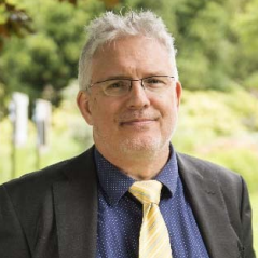
Professor Stephan Lewandowsky – Professor Stephan Lewandowsky is a cognitive scientist at the University of Bristol. He was an Australian Professorial Fellow from 2007 to 2012, and was awarded a Discovery Outstanding Researcher Award from the Australian Research Council in 2011. He held a Revesz Visiting Professorship at the University of Amsterdam in 2012, and received a Wolfson Research Merit Fellowship from the Royal Society upon moving to the UK in 2013. He was appointed a Fellow of the Academy of Social Science (UK) and a Fellow of the Association of Psychological Science in 2017. In 2016, he was appointed a fellow of the Committee for Skeptical Inquiry for his commitment to science, rational inquiry and public education. In 2019, he received a Humboldt Research Award from the Humboldt Foundation in Germany.
His research examines people’s memory, decision making, and knowledge structures, with a particular emphasis on how people update their memories if information they believe turn out to be false. This has led him to examine the persistence of misinformation and spread of “fake news” in society, including conspiracy theories. He is particularly interested in the variables that determine whether or not people accept scientific evidence, for example surrounding vaccinations or climate science.
He has published more than 220 scholarly articles, chapters, and books, including numerous papers on how people respond to corrections of misinformation and what variables determine people’s acceptance of scientific findings. His research is currently funded by the European Research Council, the EU’s Horizon 2020 program, and the Volkswagen Foundation.
Professor Lewandowsky also frequently appears in print and broadcast media and has contributed nearly 90 opinion pieces to the global media on issues related to his research.
Lecture 2: Disinformation and Fake News – What Can We Do? – Karina Stasiuk-Krajewska, SWPS Unviersity in Wrocław
Disinformation and fake news are significant problems of today. Recently, we have been experiencing their damaging impact quite often, for example in the context of coronavirus mass immunization. We are all aware of the fake news phenomenon, and it seems that we all have some knowledge of this subject. However, we still do not have satisfactory ways of counteracting disinformation and we still do not know how it can actually be done. What does research tell us about it, and what theories can be used to combat fake news in the most effective way? In her lecture, professor Karina Stasiuk-Krajewska will offer some answers to these questions. Recently, a team of scholars from SWPS University, under the leadership of professor Stasiuk-Krajewska, has joined an international consortium, which is a part of a ground-breaking Central European Digital Media Observatory (CEDMO) project. The main goal of the consortium is to research, track, and verify fake news, and educate the public about disinformation. As part of the consortium, SWPS University is primarily responsible for research and contributing to educational campaigns. Based on previously obtained research results, our researchers have proposed a number of ideas on how to analyse fake news. The methods can be applied both in practical identification of disinformation and in education about disinformation techniques. Drawing on her experience and research interests, professor Stasiuk-Krajewska will focus on the analysis of fake new as specific linguistic and discursive events.

Professor Karina Stasiuk-Krajewska – is a researcher at the Institute of Social Sciences, a lecturer at the Faculty of Law and Communication in Wrocław, and Head of the Department of Journalism and Social Communication at SWPS University in Wrocław. She is a media expert, specializing in media theory and ethics of professional communication. Her research interests focus on theory of communication and mass media as well as axiology. She is also interested in professionalization of different branches of public communication, in particular journalism and public relations, as well as theory and methodology of discourse analysis in approaches developed by Foucault, Laclau and Mouffe.
She authored close to 70 publications, including three books, such as: Etyka public relations: konteksty, koncepcje, kontrowersje (Public Relations Ethics: Contexts, Concepts, Controversies) (Wydawnictwo Uniwersytetu Wrocławskiego, 2011), Krytyka kultury jako krytyka komunikacji: pomiędzy działaniem komunikacyjnym, dyskursem a kulturą masową (Cultural Criticism as Communication Criticism: Between Communication, Discourse, and Mass Culture) (Wydawnictwo Uniwersytetu Wrocławskiego, 2003), Media i dziennikarstwo. Struktury dyskursu i hegemonia (Media and Journalism. Structures of Discourse and Hegemony) (Dom Wydawniczy Elipsa, 2018). Full bio »
Panel Discussion & Panelists
Anna Gielawska – is Vice-Chair of the Reporters Foundation (the first Polish investigative nonprofit), and co-founder of vsquare.org, a cross-border investigative network in Central Europe. As a 2019/2020 John S. Knight Fellow at Stanford University, she participated in a project focusing on countering organized disinformation and propaganda through strengthening cross-functional partnerships and collaborations. She co-authored a series of Stanford Internet Observatory reports on disinformation occurring before the 2020 presidential election in Poland. She has covered politics for leading Polish newspapers such as Rzeczpospolita, Dziennik Gazeta Prawna, and Wprost. She is also a teacher at SWPS University and the University of Warsaw.
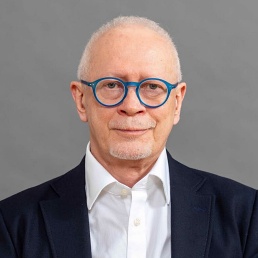
Michał Boni, Ph.D. – holds a doctoral degree in humanities. From 1977 to 1989, he was assistant professor at the University of Warsaw. He was an activist of the underground "S" organization and Head of the Mazovia region of "Solidarity" (1989-1990). He held several governmental and other prominent positions, including: Minister in the Labor and Social Policy (1991), Secretary of State in the Ministry of Labor and Social Policy (1992 - 1993), and Member of the Sejm (1991-1993). He was also the founder and head of the Institute of Public Affairs (1996-1997), advisor in the government of Jerzy Buzek, advisor to "Lewiatan", a Polish business organization, for EU projects (2002-2007), Head of Strategic Advisers to the Prime Minister Donald Tusk and the Permanent Committee of the Council of Ministers (minister: 2008 - 2011). He was the first minister of digitization in Central and Eastern Europe (2011-2013) and author of the DIGITAL POLAND program. He was a Member of the European Parliament (2014-2019), actively working in the Freedom and Justice Committee and the Industry and Science Committee (digital affairs). His area of expertise includes: legislation on data protection and privacy, access and information data as open data, the development of gigabit-society and 5G, the functioning of Artificial Intelligence, the establishment of the European Open Data Cloud for Science and Supercomputers in the EU. He is the initiator of the establishment program and fund: Rights and Values addressed to civic organizations. He is also the author and coordinator of work on the POLSKA 2030 report and YOUTH 2011 and YOUTH 2018 reports. He has also written many articles and larger publications, including "Artificial Intelligence and Management Beyond Ethics" (Martens Center). Currently, he is Assistant Professor at SWPS University and Senior Researcher Associate at Martens Center (a think tank in Brussels).
Przemek Jaroszewski – is the Head of CERT Polska - the incident response team with national responsibility founded by NASK (Research and Academic Computer Network). Przemek joined NASK in 2000, and held numerous positions responsible for LAN management, incident response, and incident management. He began his education as a programmer at the Warsaw University of Technology, to eventually get his Master's degree in Social Psychology from SWPS University of Social Sciences and Humanities in Warsaw. Przemek was involved in a number of projects on data exchange and collaboration of incident response teams. He also co-developed and taught training sessions for incident responders, such as ENISA CERT Exercises and TRANSITS.
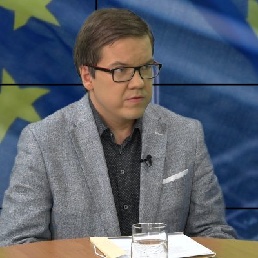
Andrzej Kozłowski – holds a Ph.D. in political science, and is Assistant Professor at the University of Lodz. He was a former editor-in-chief of CyberDefence24.pl and former analyst working for a British company, Zinc Network. Dr. Kozłowski is an alumnus of a program “State Department's 21st Century Change Makers: Information Technology Leaders Explore Cyber Security Strategies”. Currently, he is carrying out a research project "The Evaluation of the Efficiency of Selected Anti-terrorists Policies of the European States in the Period 2005-2020 – a comparative analysis of Belgium, France, Span, and the Netherlands" financed by a grant from the National Science Center. He participated in programs on the prevention of disinformation, such as “Atlantic Council 360 / Digital Sherlocks” training program and United4News - Building Democratic Resilience Against Disinformation. He published over 15 scientific articles and participated in over 30 scientific conferences around the world, including Kings College in London and the University of Manchester.
Marcin Mazurek – is Technology Director at allegro.pl, responsible for providing a technological platform for the company. He graduated from the Poznań University of Economics and Business in Poznań, the National Institute of Telecommunications in Warsaw, and he completed MBA studies at Poznań University of Economics and Business. Additionally, Marcin completed studies at INSEAD Business School.
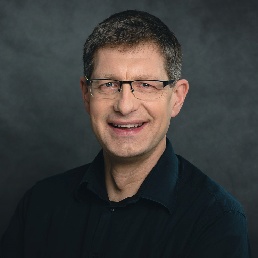
The panel will be moderated by Rafał Motriuk – as an experienced, bilingual journalist and public speaker, Rafał has been a lecturer at SWPS University since 2011, sharing his knowledge of broadcasting, world affairs, science journalism and networking. Together with his wife, Aleskandra Sawicka-Motriuk he runs his own consultancy company – InterComm. As Executive Communication Consultant, Rafał specializes in public speaking training sessions for CEOs, managers and teams. He moderates business conferences and chairs expert panel discussions both in English and Polish. He is a fan of public speaking and has been involved in the TED movement. He was both, a speaker and a host at TEDx Wrocław. Formerly with the BBC World Service in London, Rafał also works as Polish Radio’s Science Correspondent. He is an Ambassador for the Multiple Sclerosis Society. He supports foster families and is active in the diversity and inclusion movement. In his spare time (ha!) Rafał sings and plays a bass guitar in a prog-rock band.
Meeting Host
Konrad Maj, Ph.D. – Social psychologist, Head of the HumanTech Meetings project, initiator and Head of the HumanTech Center for Social and Technological Innovations. In his research and teaching he focuses on social influence, media psychology and innovations. Recently, he has been working on a Human-Robot-Interaction (HRI) project. From 2013 to 2016 he held the post of Rector’s Representative for Research, focusing on practical application of research results and social innovations. He visited numerous innovation centers, including the Institute for Social Innovation (ISI) at Carnegie Mellon University, Pittsburgh, USA, the ID+ Research Institute for Design, Media and Culture at the University of Averio, Portugal, and Design Factory at Aalto University, in Finland. Full bio »
Organizer
HumanTech Center for Social and Technological Innovation >>
Main Partner

Partners

Media Support
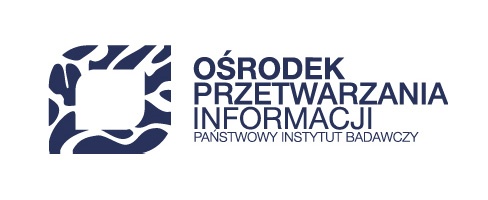
Sponsors

Date and Location
Thursday, June 24, 2020, online
Contact
Coordinator: Ewa Łuczak
e-mail: This email address is being protected from spambots. You need JavaScript enabled to view it.
The HumanTech Meetings project is funded by the Ministry of Science and Higher Education, under the “Promotion of Science” funding scheme - contract no. 792/P-DUN/2019.